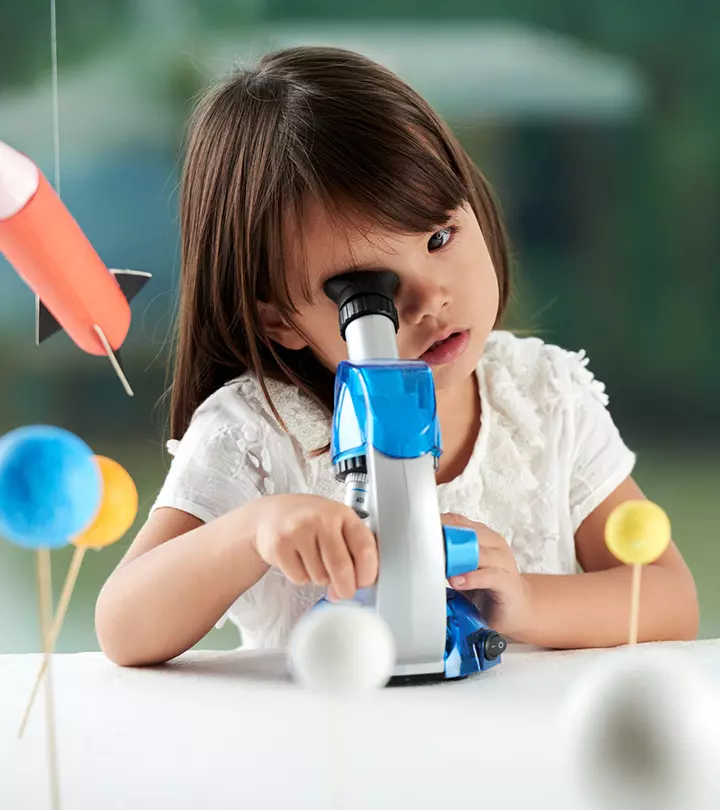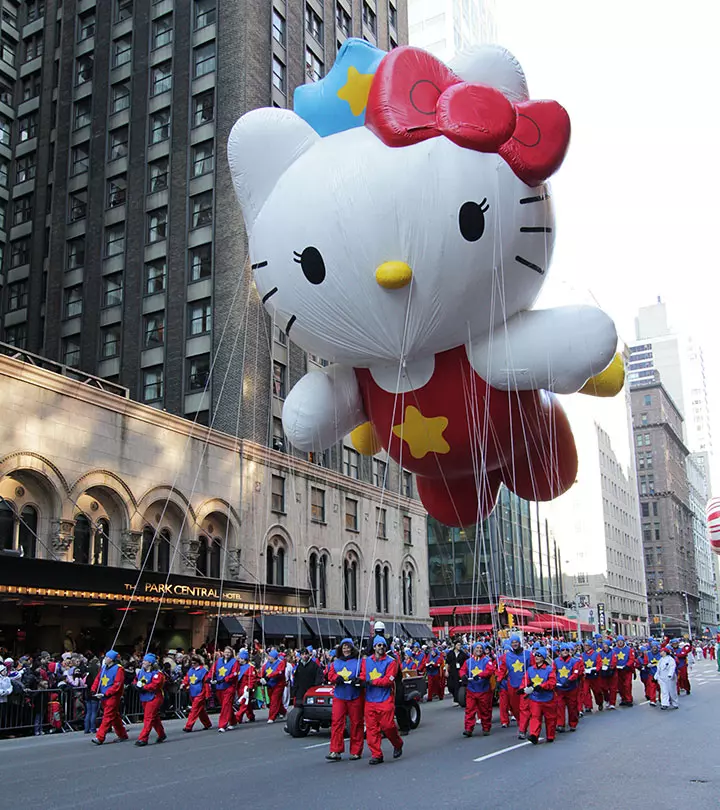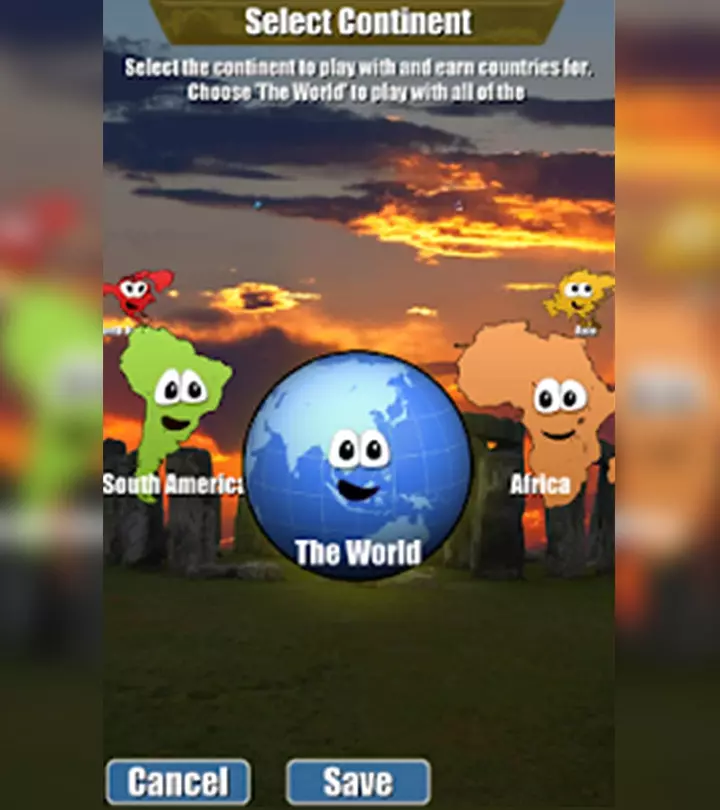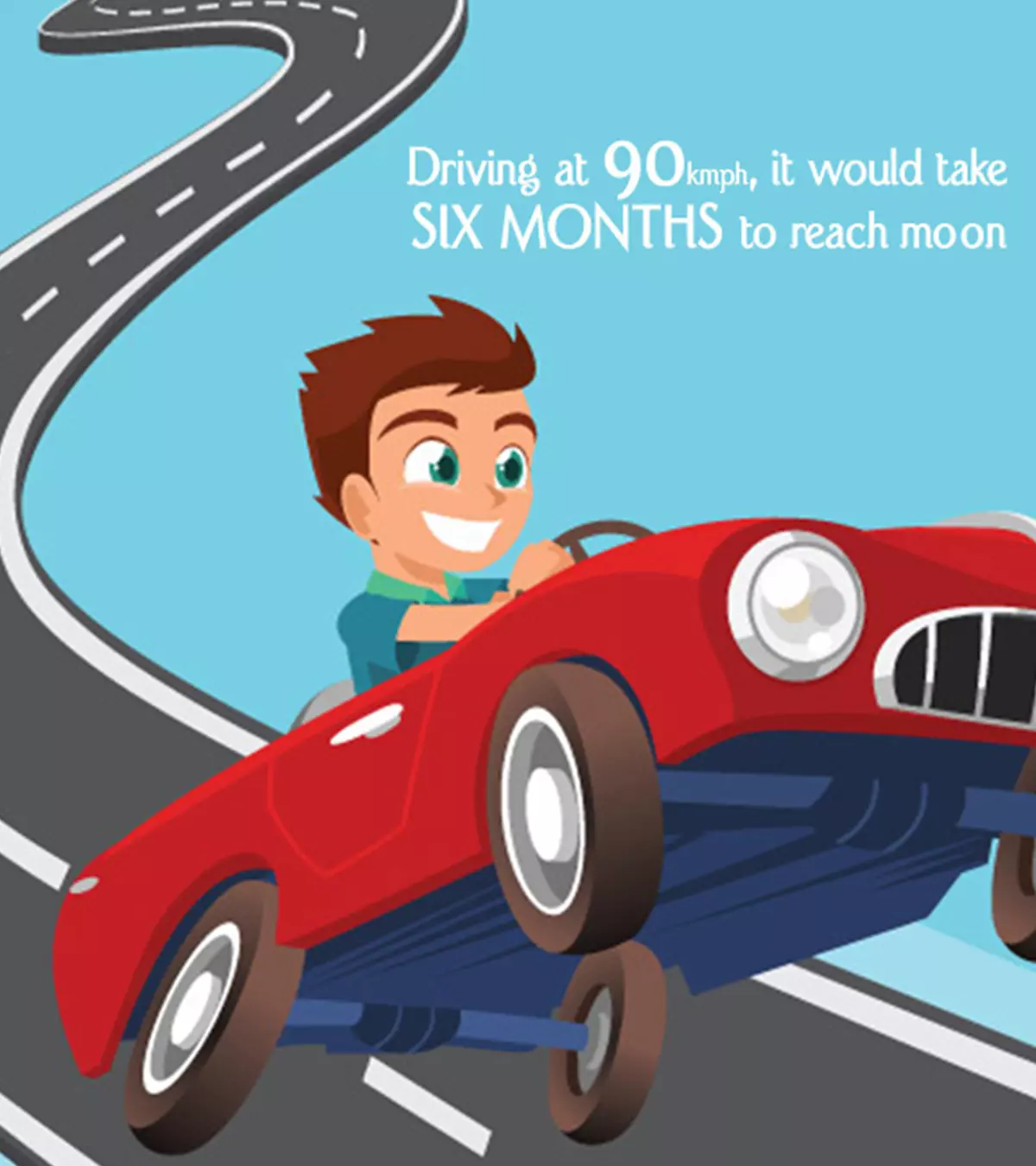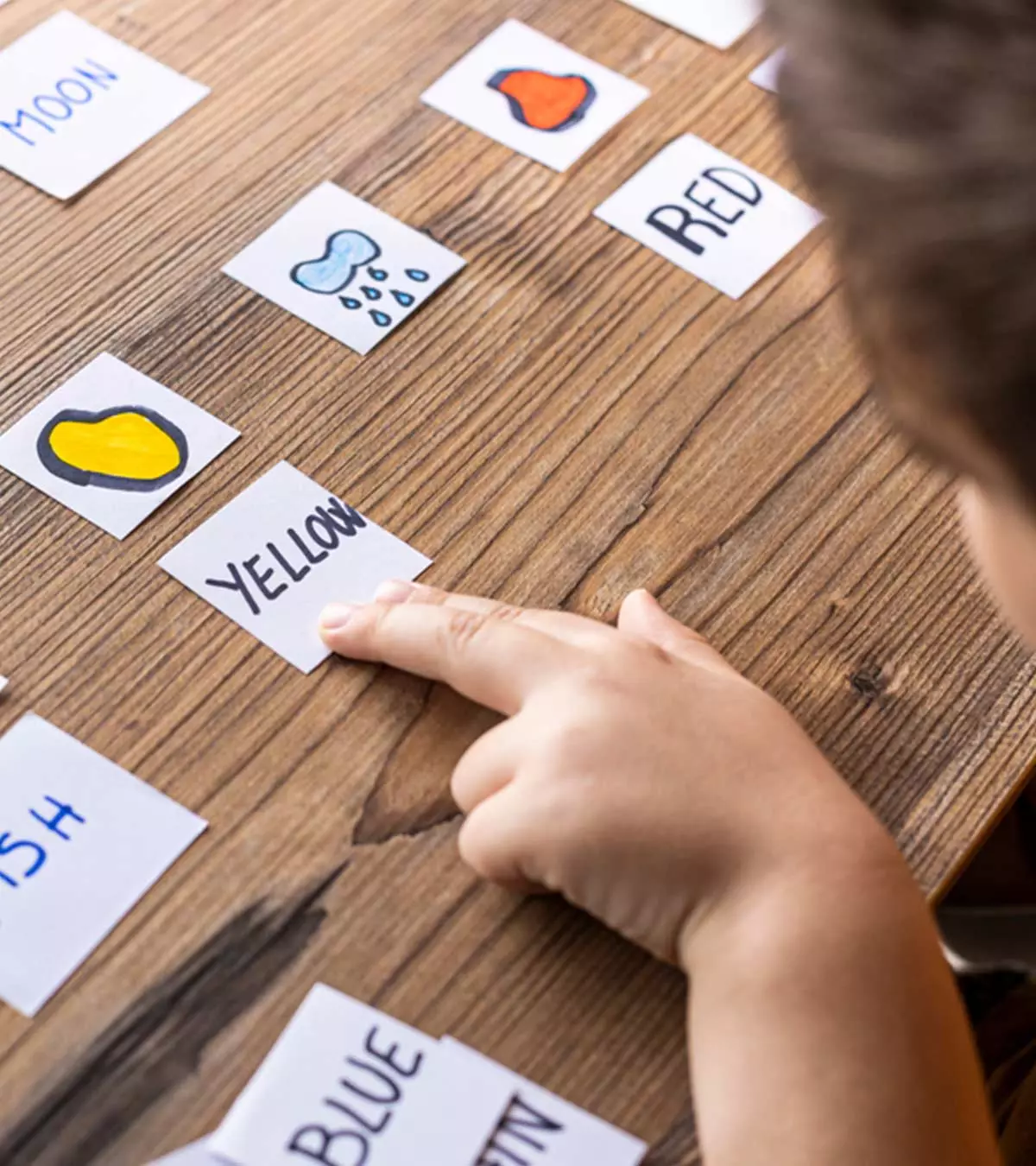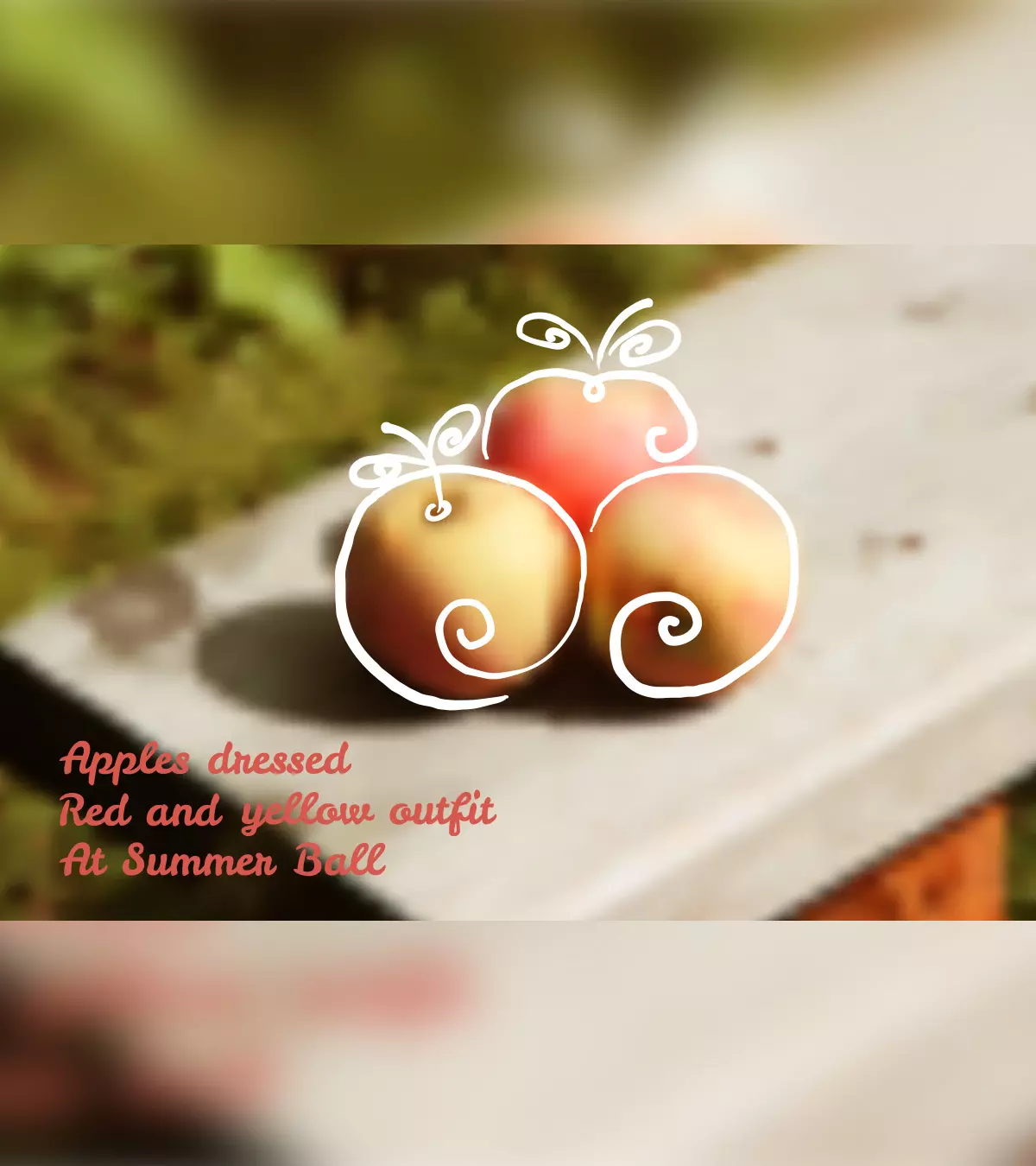
Shutterstock
Some parents find it difficult to introduce math to their children. But, you can make it enjoyable and exciting with math activities for kids. You don’t have to become a mathematician to help your children with mathematics, nor always have a pencil and a worksheet in your hands. Instead, you can teach the basics through interesting multi-sensory, educational, and hands-on math activities. We compiled a list of interesting and fun math activities and materials that can be enjoyed by kindergarten and preschool children. So, dive into this post for some of the best activities that will make your little one’s math learning fun.

Key Pointers
- Math helps children learn vital life skills, develop spatial awareness, and understand shapes, measurements, and more.
- Incorporating interesting activities while learning can make math fun.
- Counting Candies, Count It – Glue It, and Genome Trees are some interesting math activities for kids listed below.
30 Math Activities For Kids
The math activities have been categorized into different groups to make it easy for you to navigate and quickly find what you are looking for to help your children learn math.
Math Activities For 3-Year-Olds
1. Sorting and counting candy
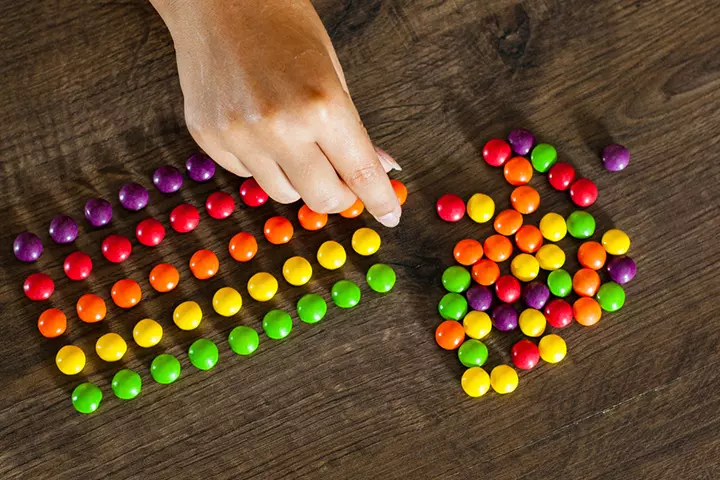
Teaching arithmetic and numeracy through games will provide your children with entertainment while also helping them learn. Children love colors. Arrange as many colorful candies as you can, and then invite your toddler to sort the candies based on the color. Let them put the candies in separate bowls and count them.
2. Making numbers with playdough
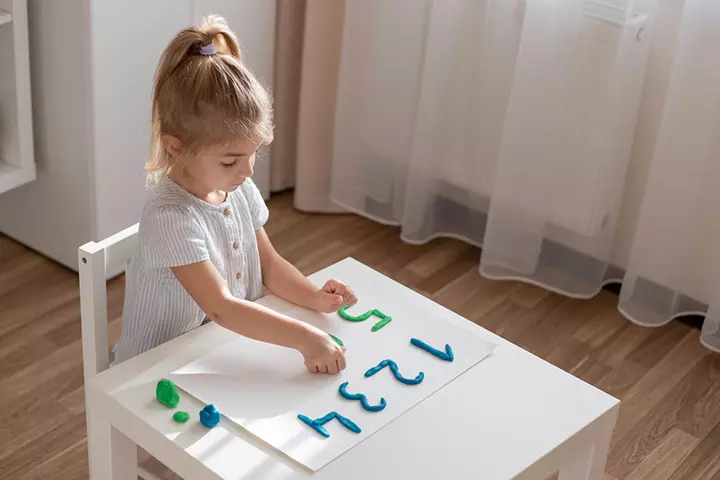
Playdough and math? Yes, it is a perfect match. Children like artwork, and this activity could unleash the artist in them.
Use colorful dough to make the numerals and place them on your children’s hands or chart paper. This is also a stimulating activity. Let them touch and feel the numbers.
3. Pattern with gummy bears
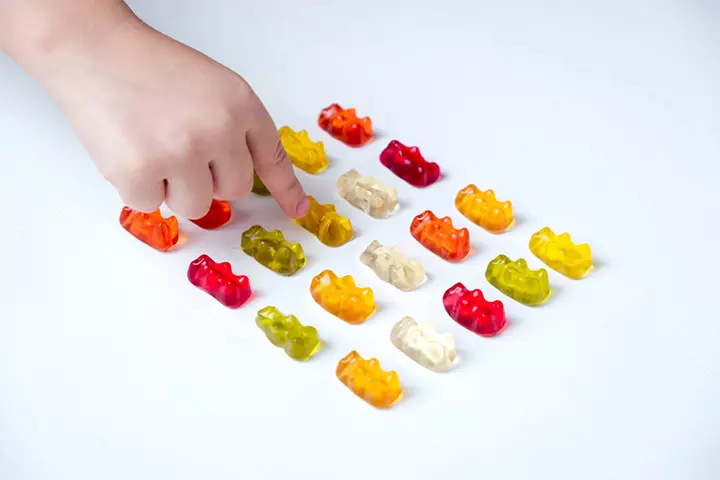
This activity involves sorting and placing the gummy bears by following a pattern. Use an AB pattern of two different colors or an ABC pattern of three different colors and keep the last place blank. Let the child figure out what color must be followed in the given pattern.
4. Sorting colors with gummy bears
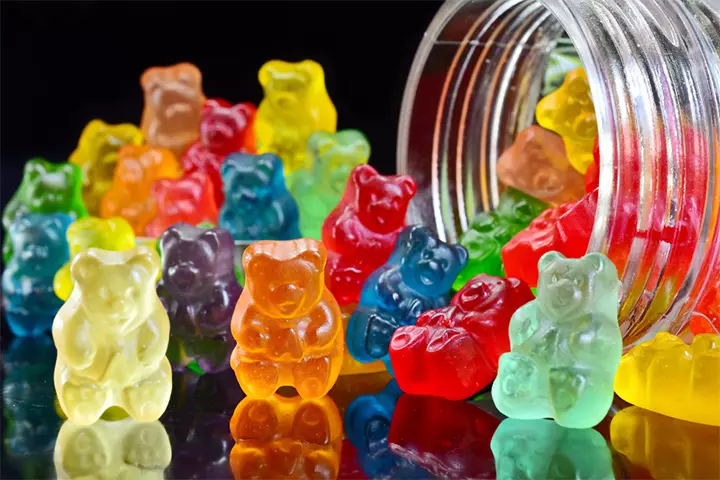
Get colorful gummy bears and a sorting mat with colored circles. Now tell your child to sort the bears and put them in the respective colored circles. Such interactive exercises will help them differentiate between colors.
5. Graphing
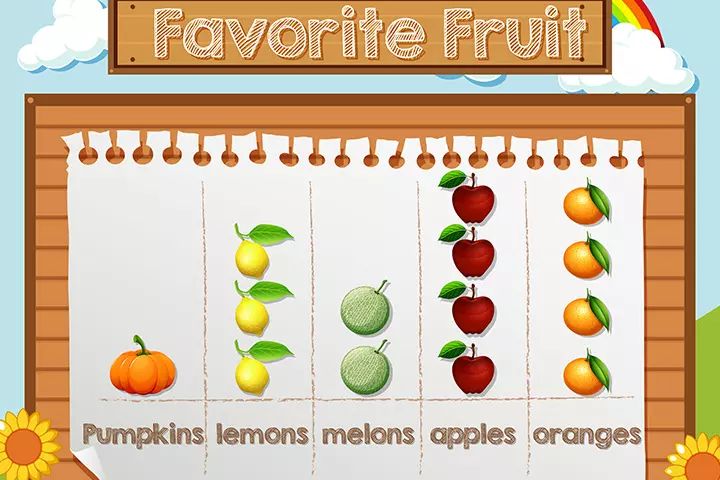
Graphing is a simple and excellent activity for teaching toddlers how to categorize things. Take a chart paper and draw a bar graph with different bars for different categories such as fruits, animals, and vehicles. Now ask your child to categorize and place their toys in their respective bars. This is a fun-filled activity that can be used for grouping other items too.
6. Count it, glue it
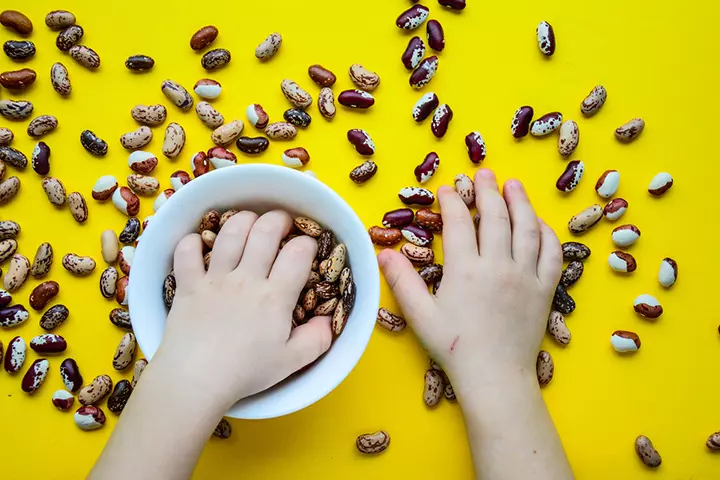
This is an effective and efficient counting activity wherein children must count objects such as beans, buttons, beads, or candies and paste them on paper. Make your children write the numbers one to ten on individual pieces of paper and then ask them to count the objects. Next, they should paste the objects onto the paper to match the number.
7. Comparing the sizes
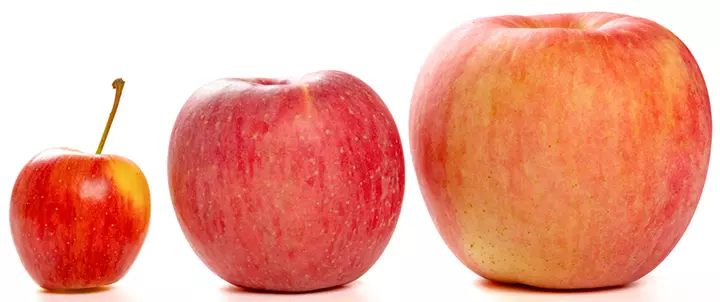
Gather some objects, such as fruits and toys, and ask your child to line them up from the smallest to the biggest object. This activity will help them become successful in comparing the sizes of different things.
 Experts say
Experts say8. Comparing the length
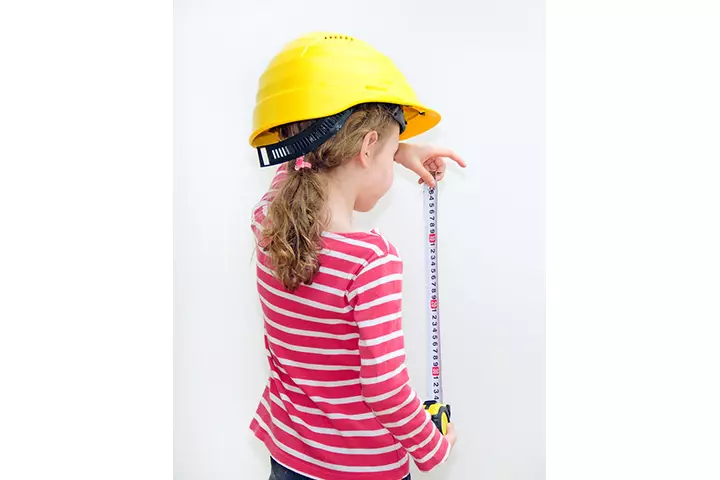
Here’s an interesting and challenging activity for teaching your children the concept of measurement. Compare the length of objects by using a measuring tape. Guide your children on how to take the measurement, and then let them do it by themselves.
Math Activities For 4-Year-Olds
9. Blending lines
This innovative activity encourages children to understand geometric shapes through visual models. Introduce your preschoolers to the concept of straight lines and curved lines.
You need yarn, paint, and paper for this activity. Draw shapes on the paper and ask your child to dip the yarn in the paint and place it onto the paper to make shapes. Guide them on how to bend the yarns to get different shapes. Notice the number of bending lines for each geometric shape.
10. Bottle bowling
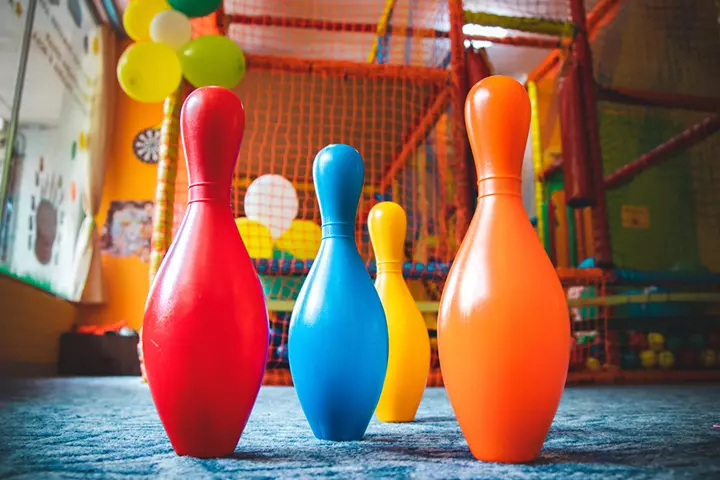
This is an amazing activity where children can learn counting while playing. Take some plastic bottles and help your child arrange the bottles in a triangular shape. Now encourage your child to roll a ball and hit the bottles. Ask them to count the bottles that have fallen after every hit.
11. Pushing the limits with paper
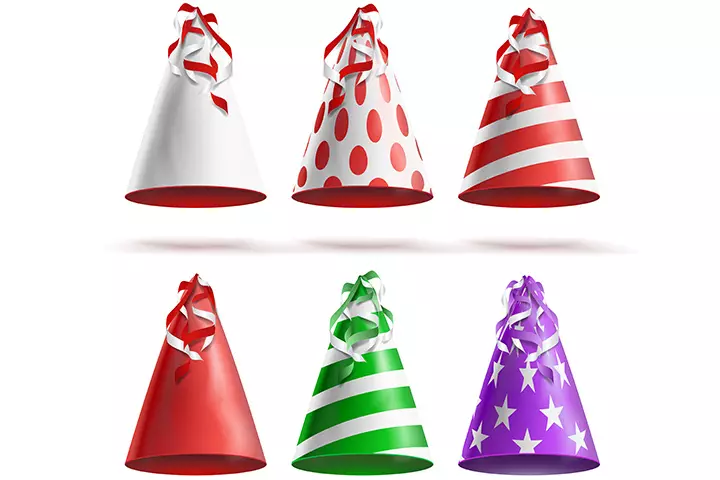
This activity will help you develop your child’s spatial reasoning skills and creativity and is an excellent addition to the school curriculum. Take some construction paper, glue, glitter, and tissue paper. Make a triangle by cutting a sheet of paper, and explain to your child how this triangle can be folded to form a cone. Let them decorate the triangle as they want, fold it into a cone, fix it up using tape, and wear it as a birthday cap.
12. Match the cookies
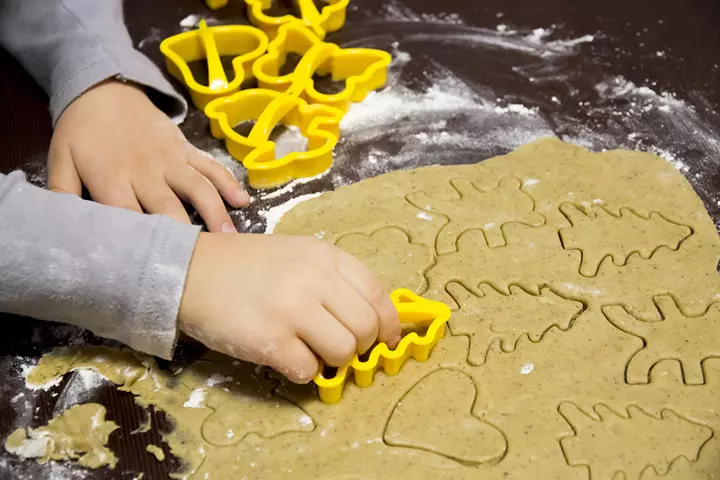
Teach your children or students the concept of matching via this creative puzzle. Make the dough, cut out some cookies using cookie cutters, and hand over the rest to your children. Let them figure out the shapes and make some more to match the shapes you have created.
13. Geome tree
Teach your children about different shapes and patterns while making a geome tree with these minimal resources. Cut a triangle and a small rectangle and paste them to form a tree. Now cut out circles, triangles, and squares to decorate it further.
14. Number dance
Children who love dancing will surely enjoy this activity. Place a few number mats on the floor. Now, write a simple equation on the screen or board and let them figure out the answer. Once they get the answer, they need to jump and put their feet on the correct number.
Math Activities For 5-Year-Olds
Suzy Koontz teaches Math & Movement, an activity that uses a multi-sensory learning approach to teach students valuable skills to succeed in their school’s math and reading curricula. One of the students attending her classes says, “I think that Math and movement is a really good skill for kids that think math is really boring. Math is funnier than you think (i).”
15. Take 10
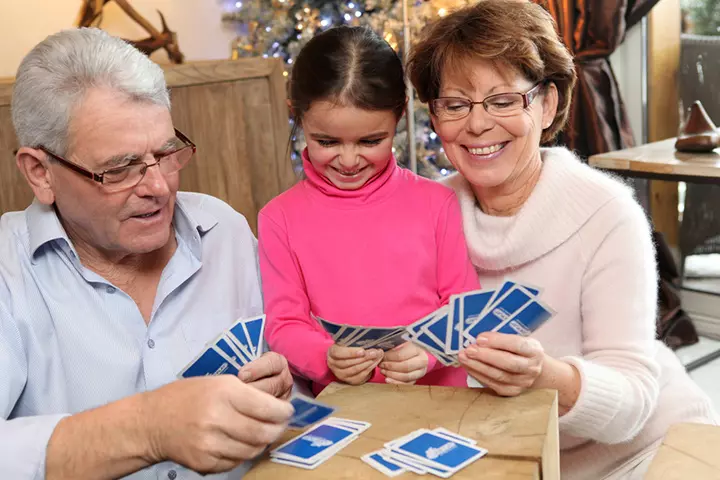
This is an easy-to-play and fun math card game that involves addition. Take a shuffled deck of cards, remove the face cards, and invite your child to stack the cards face down. Each player needs to choose five cards and make as many equations in which the sum equals ten.
16. Growing taller
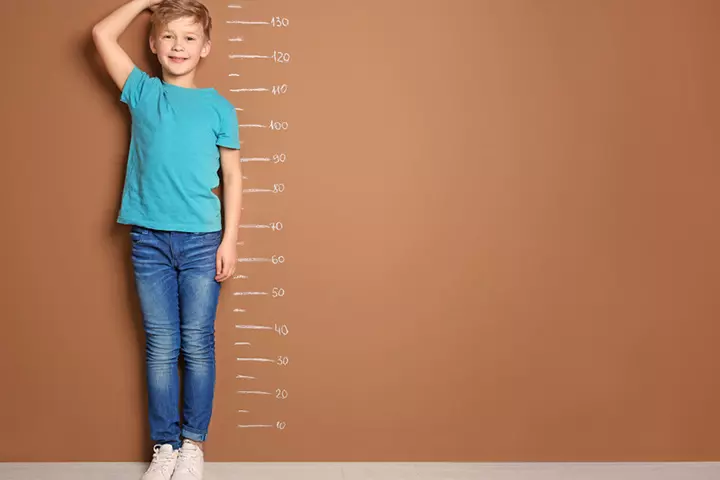
Explain to your child the concept of measurement with this activity. Make a height chart on cardboard and place it on the wall. Invite your child to decorate the chart with colors and stickers. Next, teach them how to read height and make them measure their height or the height of their stuffed animals.
17. Measure the volume

Children love playing with water, and so, this measuring activity will be great fun for them. Take measuring cups, water, and a big jar. Ask them how many cups of water are required to fill the big jar, and let them explore the concept of measurement.
18. Bring me
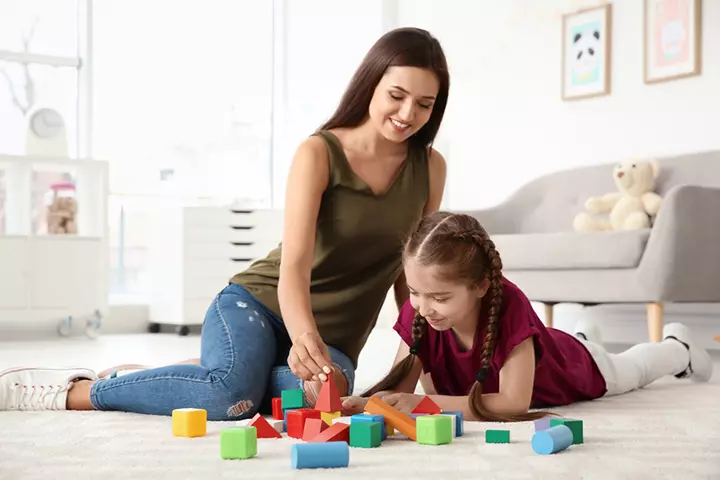
Play this game whenever your children feel bored. Ask them to bring some gummy bears, candies, or other interesting objects. As they bring the objects, start counting, and your children will start counting with you in no time.
19. Shape walk
Shape walk can help improve your child’s shape recognition skills. For this activity, you need to draw shapes on a large piece of paper or the floor.
Observe the shapes with your child. Walk on the outline of the shapes and tell your child to follow you. While turning a corner on the shape, instruct your child on which side and how many times you are taking the turn.
20. Make a salad
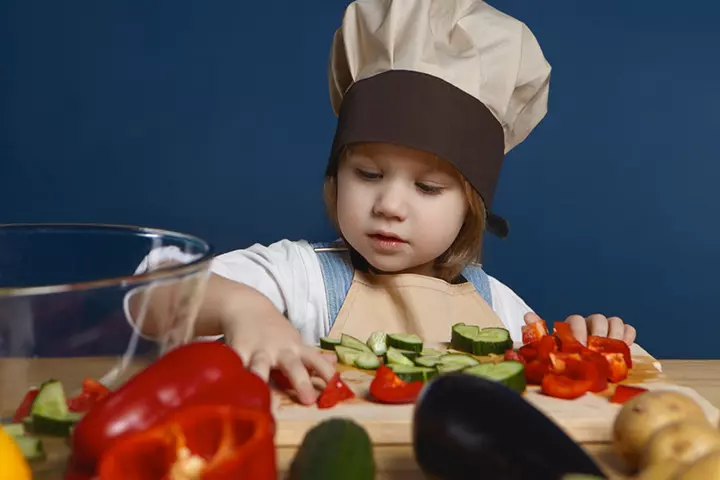
Practice counting while making delicious and yummy recipes in the kitchen. Prepare a salad with your children, and ask them to count the ingredients in the salad. For instance, make them count the number of cucumber pieces, tomatoes, peas, etc.
Work their brains by asking them if they can make three pieces of lettuce from a single leaf and how many peas can fit inside a pea-pod. Also, help your children arrange the ingredients in a pattern.
21. Guess how many?
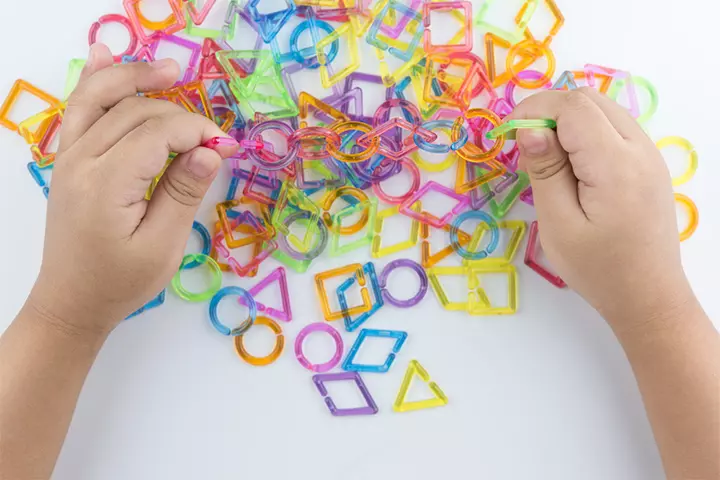
Here’s another interesting counting activity for children. Bring a box of blocks, candies, or gummy bears and tell your children, “I wonder how many candies fit in this box.” Dump all the blocks from the box and start counting. You will notice that your children will find it thrilling when you make mistakes.
Math Activities For 6-Year-Olds
22. Pouring and comparing
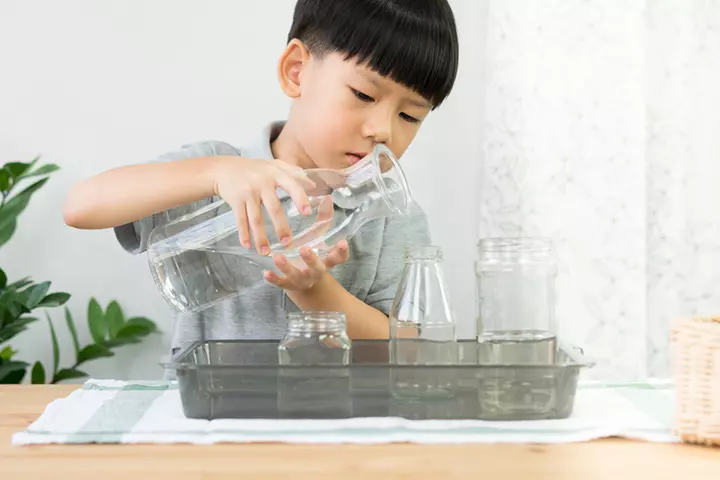
Make your children pour rice into different-sized beakers. Ask them to arrange the beakers from smallest to biggest and biggest to smallest. Using these superlatives can help them learn the concept of measurement. You may try this activity with the help of sand too.
23. Math facts garden
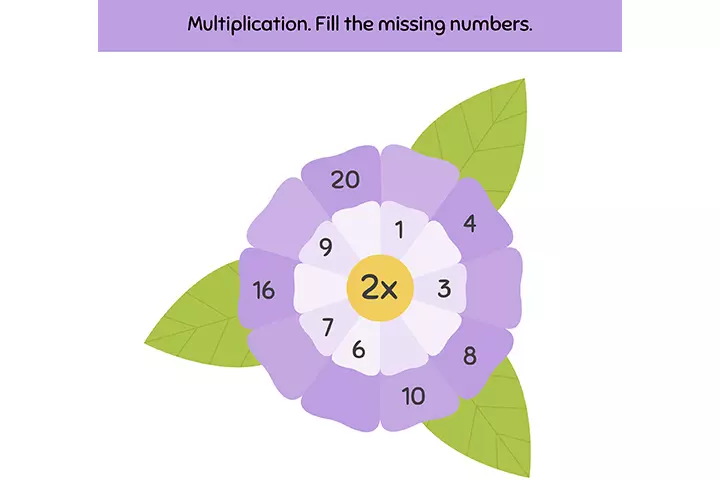
This is an amazing math game for grade-1 kids. To play this, they need to draw a big flower on the ground with ten numbered petals. Then, they will have to write a number in the middle to multiply, add, or subtract, and write the correct and respective answers on the petals.
24. Hit the target and graph
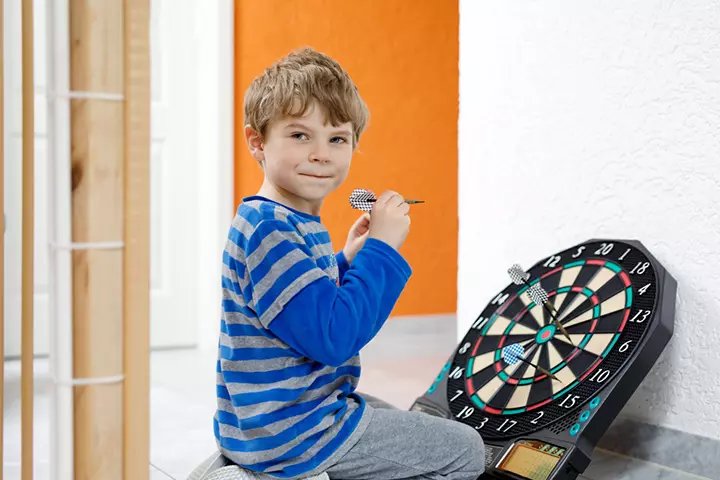
Let your children hit the target color. Next, create a graph and help them record their points. In this way, you can teach them counting and graphing.
25. Tell time on a giant clock
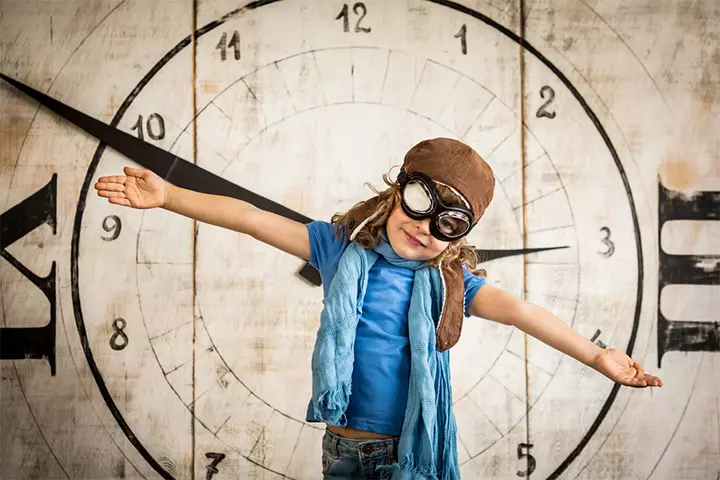
Draw a giant clock on the ground, and ask your children to be the hour and minute hands. Call out a time and tell them to mark the time on the clock by standing in the correct position. This will be a fun activity for learning how to read a clock.
26. Measure your frog jumps
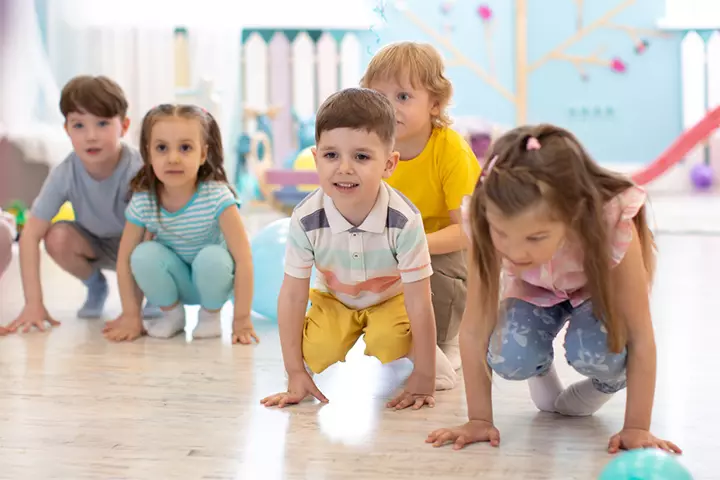
This is a measurement activity in which your children will have to hop or jump like a frog or kangaroo. Once they jump, take a measuring tape or a ruler and tell them to measure the distance they have covered.
27. Run a flashcard race
Here is one more fantastic race activity for children. Place a series of flashcards onto the floor. These flashcards should have simple math problems written on them. Challenge your children to see how quickly they can make their way from start to finish by giving the correct answers. They can move only after giving the correct answer for each.
28. Let’s find the signs
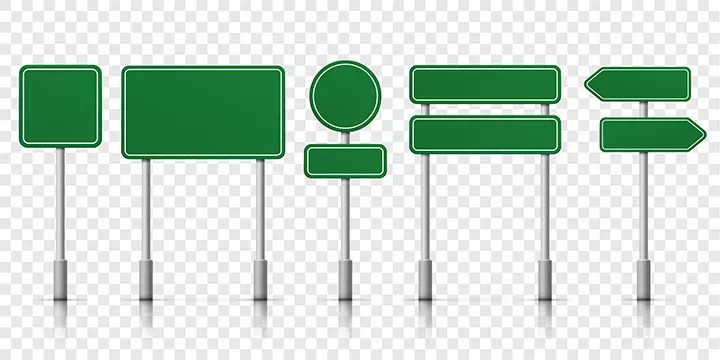
Take your child on a sign hunt, and help them learn more about shapes by looking at the signboards. Take pictures of different signs you see outside, put them together in a sign book, and ask your child to identify them. This activity will help build their shape-recognition skills.
29. Roll the dice
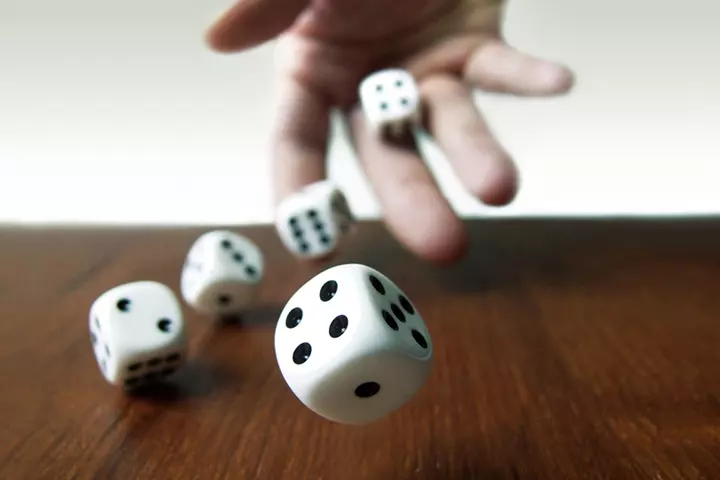
This is another excellent way to practice addition. This is one of the dice games for kids. You need dice, paper, and a pencil for this activity. Ask your children to roll the dice and add the numbers. Make other players take their turn. Guide your children initially, and then let them take ownership of the game. You will notice the confidence in them while adding the numbers.
30. Math Tic-Tac-Toe
This activity may be used to practice any sort of math problem. For this, you will need two sheets of paper and a pencil. First, prepare a math problems set (age-appropriate addition, subtraction, multiplication, or division). On the second paper, draw a three-by-three grid for playing Tic-Tac-Toe. Divide the children into teams of two and explain the original game. Perform a coin toss to decide who goes first and ask the child to solve a problem. If the answer is correct, they get to put a mark (X or O) on the grid. The child with three marks (three correct answers) aligned vertically, horizontally, or diagonally wins.
While technology has certainly made it easier to enhance learning through online platforms, there are still many who prefer a more traditional approach, which is where these offline activities come in. Use these to get your children interested in mathematics.
Frequently Asked Questions
1. Can math activities help improve my child’s academic performance?
Yes, math activities can help your child’s academic performance by allowing them to practice and master mathematical concepts in a fun way. Solving math riddles for kids can make learning even more engaging, challenging them to think critically and creatively. It can also boost their interest in math, resulting in improved classroom performance.
2. How can math activities help children develop their confidence in the subject?
Math activities require children to exercise their problem-solving skills to master the topics. Over time, the constant practice boosts the child’s confidence, making them not fear math and, instead, enjoy working on various math problems, be it in the classroom or at home.
3. What are some tips for parents to implement math activities at home?
To effectively implement math activities at home and get optimal benefits, be consistent and set a schedule to ensure math activities are done routinely. Ask your children to explain their thought process when they solve a problem to help reinforce their understanding. You may also use real-life situations, like playground activities or grocery shopping, to discuss math concepts, like addition, counting, and so on.
Learning math in the early years is important as it is an essential life skill. It helps develop skills such as problem-solving, measuring, spatial awareness, and an understanding of geometry and shapes. It also promotes logical reasoning and estimation, which help them learn other subjects such as chemistry and physics. Fun math activities or even maths puzzles for kids are a good way to teach children these essential concepts outside the classroom without getting bored. Furthermore, engaging them in these interesting math activities for kids may pique their interest in the subject.
Infographic: Interesting Math Books For Children
Math is not always about solving problems or addition and subtraction. There are several math-based books for children that will help them learn various math-related concepts and ideologies in a fun way. Read and save this infographic for a list of such books.
Some thing wrong with infographic shortcode. please verify shortcode syntax
Kids will have fun as they explore addition and subtraction with these friendly dinos. Join us for a fun and educational journey!
Personal Experience: Source
MomJunction articles include first-hand experiences to provide you with better insights through real-life narratives. Here are the sources of personal accounts referenced in this article.
i.Math & Movement;https://www.youtube.com/watch?feature=shared&v=9HdDRh0Ohvk
Community Experiences
Join the conversation and become a part of our nurturing community! Share your stories, experiences, and insights to connect with fellow parents.
Read full bio of Elisa Yi
Read full bio of Soma Sengupta
Read full bio of Harshita Makvana
Read full bio of Kavita Kankani







